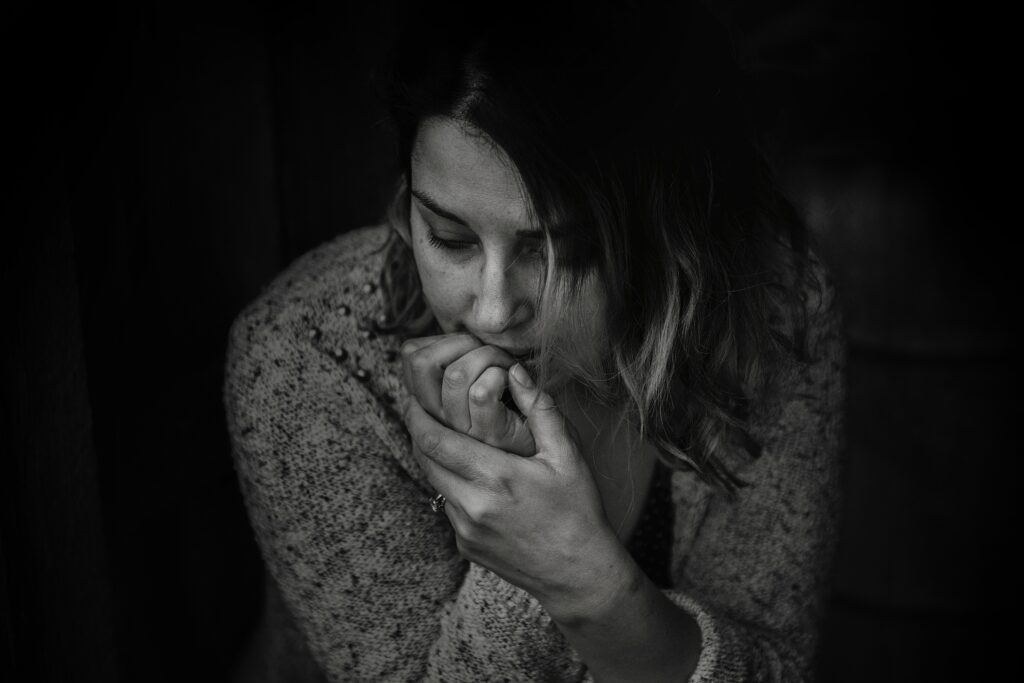Anxiety is a term that is thrown around a lot these days. It seems like everyone is anxious about something. But does that mean that anxiety is a universal experience? Or are some people more prone to feeling anxious than others? In this blog post, we will explore the truth about anxiety disorders and discuss whether or not all people suffer from it.
Everyone, to some extent, has anxiety symptoms – but that doesn't mean that we all have mental health challenges, or a true anxiety disorder. Read on to learn about the differences.

Anxiety Disorders are the most common mental illness in the United States, affecting 40 million adults
Anxiety disorders are the most common mental illness in the United States, affecting 40 million adults. That's 18% of the population! Anyone can develop an anxiety disorder, though it is more common in women and people who have a family history of anxiety.
An anxiety disorder can cause a multitude of symptoms, including racing heart, sweating, trembling, shortness of breath, and dizziness. People with an anxiety disorder may also experience difficulty concentrating, insomnia, and irritability. While there is no one cause of an anxiety disorder, they are often brought on or worsened by stress or trauma.
The most common anxiety disorder is Generalized Anxiety Disorder (GAD). This is the umbrella diagnosis for most anxiety symptoms, and can include people who ask for help with their mental health, social anxiety disorder, or panic disorder.
Generalized Anxiety Disorder is the most common type of anxiety disorder, affecting 6.8 million adults
If you're one of the 6.8 million adults in the United States who suffer from generalized anxiety disorder (GAD), you know that living with anxiety can be tough. Symptoms of Generalized Anxiety Disorder can include excessive worry, irritability, muscle tension, panic attacks, and difficulty sleeping.
You might worry about anything and everything, including your health, your finances, and your relationships. This constant worry can take a toll on your mental and physical health. If you're struggling to manage your anxiety, there's help available. Cognitive behavioral therapy is an effective treatment for GAD, and medication can also be helpful.
You don't have to suffer in silence when you feel anxious. There are people who can help you manage your anxiety disorder and live a happier, healthier life.
Symptoms of anxiety disorder can include excessive worry, difficulty sleeping, muscle tension, and racing thoughts
Anxiety is a normal emotion that everyone feels from time to time. However, some people experience anxiety to such a degree that it interferes with their daily lives. Symptoms of anxiety can include excessive worry, difficulty sleeping, muscle tension, and racing thoughts.
This distinction – whether or not it interferes with everyday life – is what distinguishes mental disorders from “normal” mental health. If you feel anxious so much that it interferes with sleep, school, or work, you may have an anxiety disorder or other mental health concern, and you should seek treatment.
In severe cases, anxiety can lead to panic attacks, which are episodes of intense fear and physical symptoms such as a pounding heart, shortness of breath, and dizziness. If you are experiencing any of these symptoms on a regular basis, it is important to seek professional help. With treatment, it is possible to manage anxiety and live a happy and productive life.
Many people with anxiety disorders go undiagnosed or untreated
Anxiety disorders are the most common type of mental illness, affecting millions of people worldwide. Despite this, many people with anxiety disorders go undiagnosed or untreated. This may be due to the fact that anxiety is often seen as a normal part of life, and so many people don't seek help for their symptoms.
Additionally, there is a lot of shame and stigma surrounding mental illness, which can prevent people from seeking treatment. It's important to remember that anxiety disorders are real medical conditions that can be very debilitating. If you or someone you know is struggling with anxiety, don't hesitate to seek help.
Treatment for anxiety disorders includes therapy and medication
Anxiety disorders are one of the most common mental health conditions. They can cause a range of symptoms, including racing heart, difficulty breathing, and overwhelming worry. While everyone feels anxious at times, anxiety disorders go beyond occasional worry and can significantly interfere with day-to-day life. Fortunately, there are a number of effective treatments available.
Therapy is often the first line of treatment for anxiety disorders. Cognitive-behavioral therapy (CBT) is a type of therapy that helps people to identify and change negative thought patterns that contribute to anxiety. CBT can be conducted individually or in group settings, and it has been shown to be highly effective in treating anxiety disorders.
For people who do not respond to therapy or who have more severe symptoms, medication may also be recommended. A variety of medications are available that can help to reduce anxiety levels. These include antidepressants, anti-anxiety medications, and beta-blockers. Medication should always be prescribed by a mental health professional such as a psychiatrist or psychologist.
Anxiety disorders can be debilitating, but there are many effective treatments available. If you or someone you know is struggling with anxiety, please seek professional help.
Final thoughts: does everyone have an anxiety disorder?
To sum up, you may have an anxiety disorder if your mental health or panic attacks are interfering with your daily life. Most folks are going to be able to have enough mental health resilience to avoid starting specialized treatment. But if it's interfering in your daily life: go seek help.